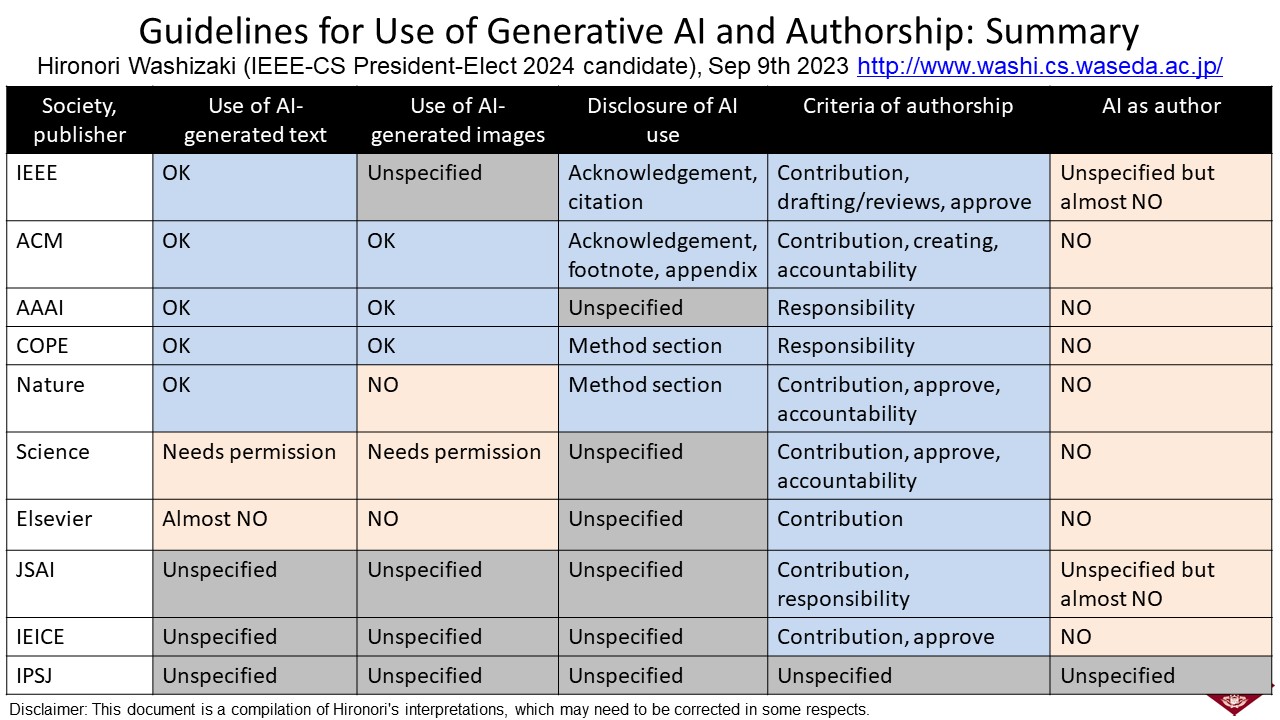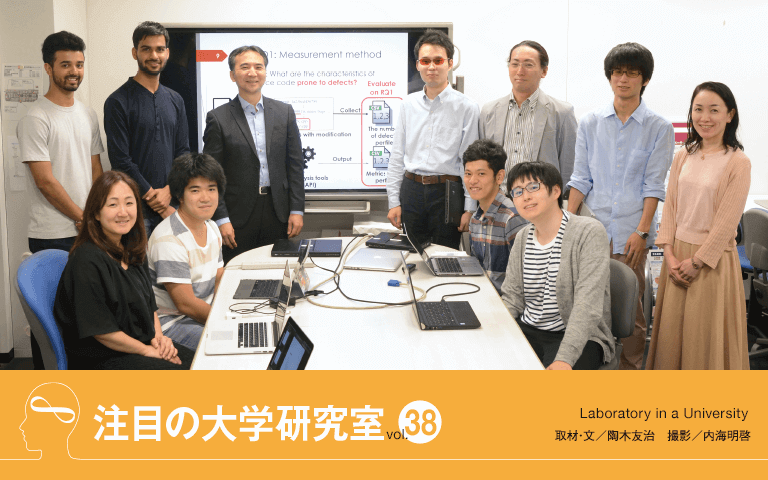Prof. Washizaki has started to take an additional new role as an Advisor at the University of Human Environments ( https://www.uhe.ac.jp/ ) to support the launching of a new department of data science and software engineering under environmental studies context. Launching such an interdisciplinary department and program is a challenging and exciting journey. There are open faculty positions for that (in Japanese at https://jrecin.jst.go.jp/seek/SeekJorDetail?id=D123070675 ).
鷲崎教授が人間環境大学 顧問として、環境関連の文脈におけるソフトウェアエンジニアリングやデータサイエンスに関わる学際的な新学科設立申請に向けたサポートを始めました。任期のない教員を募集されていますので、ぜひご検討ください。




